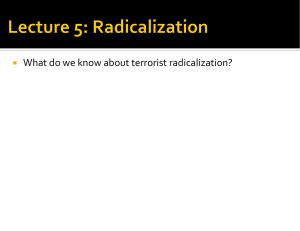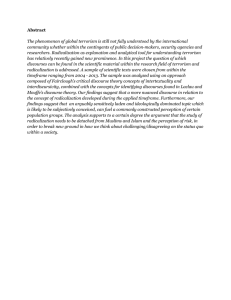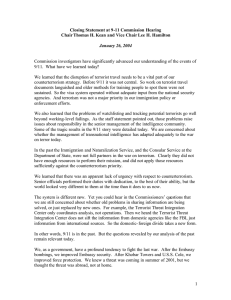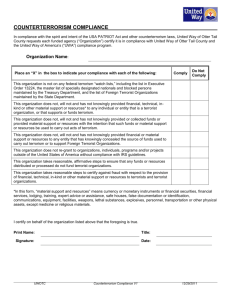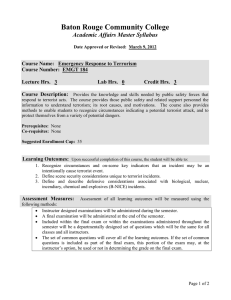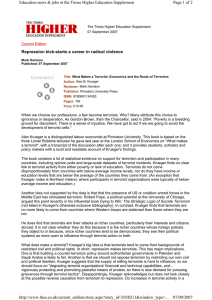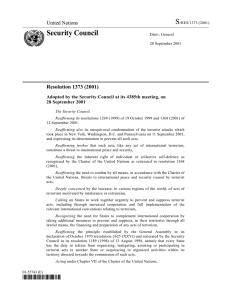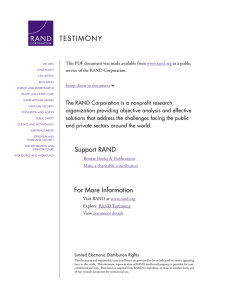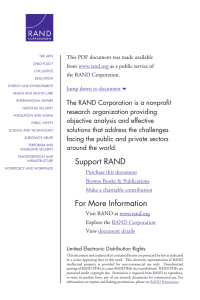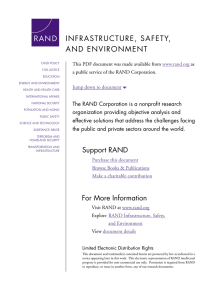At the invitation of Bernard Cazeneuve, Minister of the ... ministers of the interior/ and or justice of Latvia, Rihards... Joint statement
advertisement
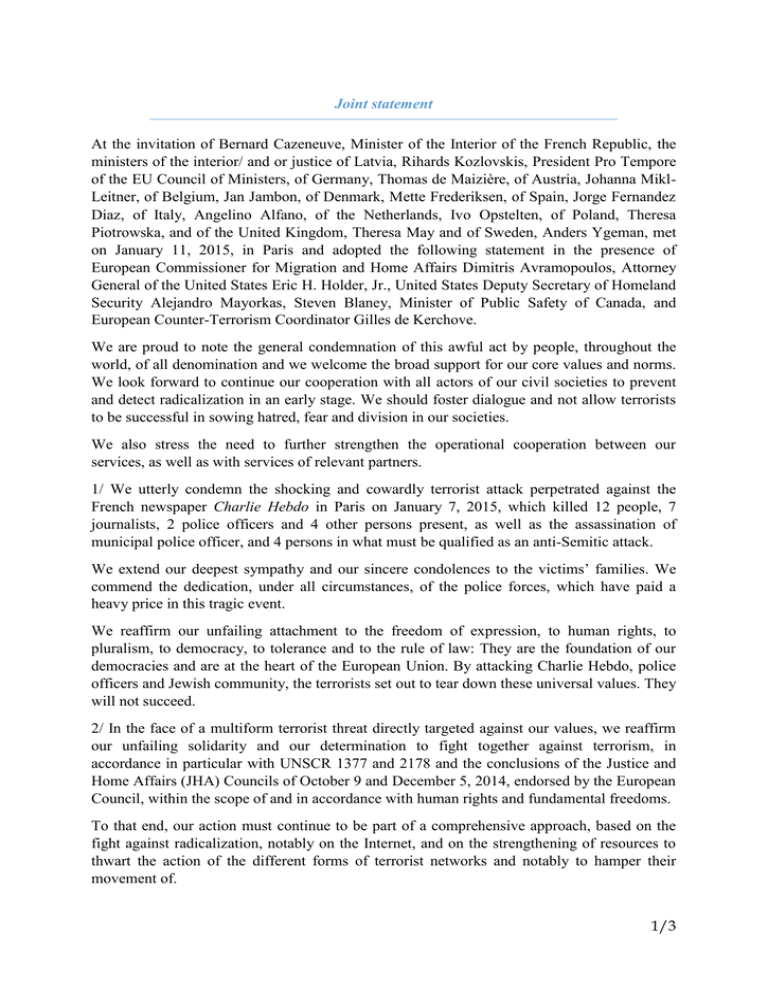
Joint statement At the invitation of Bernard Cazeneuve, Minister of the Interior of the French Republic, the ministers of the interior/ and or justice of Latvia, Rihards Kozlovskis, President Pro Tempore of the EU Council of Ministers, of Germany, Thomas de Maizière, of Austria, Johanna MiklLeitner, of Belgium, Jan Jambon, of Denmark, Mette Frederiksen, of Spain, Jorge Fernandez Diaz, of Italy, Angelino Alfano, of the Netherlands, Ivo Opstelten, of Poland, Theresa Piotrowska, and of the United Kingdom, Theresa May and of Sweden, Anders Ygeman, met on January 11, 2015, in Paris and adopted the following statement in the presence of European Commissioner for Migration and Home Affairs Dimitris Avramopoulos, Attorney General of the United States Eric H. Holder, Jr., United States Deputy Secretary of Homeland Security Alejandro Mayorkas, Steven Blaney, Minister of Public Safety of Canada, and European Counter-Terrorism Coordinator Gilles de Kerchove. We are proud to note the general condemnation of this awful act by people, throughout the world, of all denomination and we welcome the broad support for our core values and norms. We look forward to continue our cooperation with all actors of our civil societies to prevent and detect radicalization in an early stage. We should foster dialogue and not allow terrorists to be successful in sowing hatred, fear and division in our societies. We also stress the need to further strengthen the operational cooperation between our services, as well as with services of relevant partners. 1/ We utterly condemn the shocking and cowardly terrorist attack perpetrated against the French newspaper Charlie Hebdo in Paris on January 7, 2015, which killed 12 people, 7 journalists, 2 police officers and 4 other persons present, as well as the assassination of municipal police officer, and 4 persons in what must be qualified as an anti-Semitic attack. We extend our deepest sympathy and our sincere condolences to the victims’ families. We commend the dedication, under all circumstances, of the police forces, which have paid a heavy price in this tragic event. We reaffirm our unfailing attachment to the freedom of expression, to human rights, to pluralism, to democracy, to tolerance and to the rule of law: They are the foundation of our democracies and are at the heart of the European Union. By attacking Charlie Hebdo, police officers and Jewish community, the terrorists set out to tear down these universal values. They will not succeed. 2/ In the face of a multiform terrorist threat directly targeted against our values, we reaffirm our unfailing solidarity and our determination to fight together against terrorism, in accordance in particular with UNSCR 1377 and 2178 and the conclusions of the Justice and Home Affairs (JHA) Councils of October 9 and December 5, 2014, endorsed by the European Council, within the scope of and in accordance with human rights and fundamental freedoms. To that end, our action must continue to be part of a comprehensive approach, based on the fight against radicalization, notably on the Internet, and on the strengthening of resources to thwart the action of the different forms of terrorist networks and notably to hamper their movement of. 1/3 We underline in particular the importance of the commitment of all the actors, at every level, who work in the fight against radicalization and we are committed to supporting the activities of the future RAN Center of Excellence. 3/ We are concerned at the increasingly frequent use of the Internet to fuel hatred and violence and signal our determination to ensure that the Internet is not abused to this end, while safeguarding that it remains, in scrupulous observance of fundamental freedoms, a forum for free expression, in full respect of the law. With this in mind, the partnership of the major Internet providers is essential to create the conditions of a swift reporting of material that aims to incite hatred and terror and the condition of its removing, where appropriate/possible. In addition to this effort, we have resolved – to combat terrorist propaganda and the misleading messages it conveys – to develop positive, targeted and easily accessible messages; able to counter this propaganda, aimed at a young audience that is particularly vulnerable to indoctrination. In this regard, we urge all Member States to make maximum use of the Syria Strategic Communication Advisory Team (SSCAT) to be established by Belgium with European funding. In order to tackle the root causes of radicalization in particular of young people, the EU should consider strengthening targeted actions designed to raise awareness and promote the respect of fundamental rights and values, including the development of an EU communication strategy as foreseen by the Council conclusions on the development of a renewed European Union Internal Security Strategy. 4/ In time of new terrorist threats, we commit to enhance our cooperation in the field of law enforcement, aiming at ensuring the security of our citizens, and building trust with civil society to counter violent extremism, both bilaterally and multilaterally. We are working to reduce the supply of illegal firearms throughout Europe. This is a priority under the European Multidisciplinary Platform Against Criminal Threats. As part of this work we are improving intelligence sharing amongst Member States and increasing the number of joint firearms operations across Europe. This cooperation will be increased. We are determined to implement all measures that may be helpful with respect to the sharing of intelligence information on the different forms of the threat, notably foreign terrorist fighters, on knowledge of their movements, and the support they receive, wherever they are, with a view to improving the effectiveness of our fight against these phenomena. To that end, we want to underscore our determination to use fully the resources of Europol and Eurojust as well as Interpol. We hope to swiftly finalize work engaged under the auspices of the Commission to step up the detection and screening of travel movements by European nationals crossing the European Union’s external borders. To that end, we will more extensively detect and monitor certain passengers based on objective, concrete criteria which respect smooth border crossings, fundamental liberties and security requirements. Furthermore, we are of the opinion that the rules of the Schengen Borders Code should be amended in a timely fashion to allow for broader consultation of the Schengen Information 2/3 System during the crossing of external borders by individuals enjoying the right to free movement. 5/ We are further convinced of the crucial and urgent need to move toward a European Passenger Name Record (PNR) framework, including intra-EU PNR. We are prepared to move forward, adopting a constructive approach with the European Parliament. 6/ Finally, given the international scale of the phenomenon, we must promote all initiatives aimed at improving cooperation with our partners which are transit states and if possible destination states for foreign terrorist fighters. Our external actions and policies should constantly be in line with our internal actions and policies, and vice versa, including through the Global Counter Terrorism Forum (GCTF). 7/ We, especially, appreciate the caliber and the crucial importance of our excellent cooperation with the United States and the Canada in dealing with this phenomenon, and are determined not only to maintain, but to increase, our cooperation in order to defend the values of peace and tolerance around the globe. 8/ On the basis of this joint declaration, the informal Justice and Home Affairs Council (JHA) in Riga on January 29, 2015, should enable us to continue and deepen our efforts to more effectively combat terrorism. Paris, January 11, 2015 3/3
